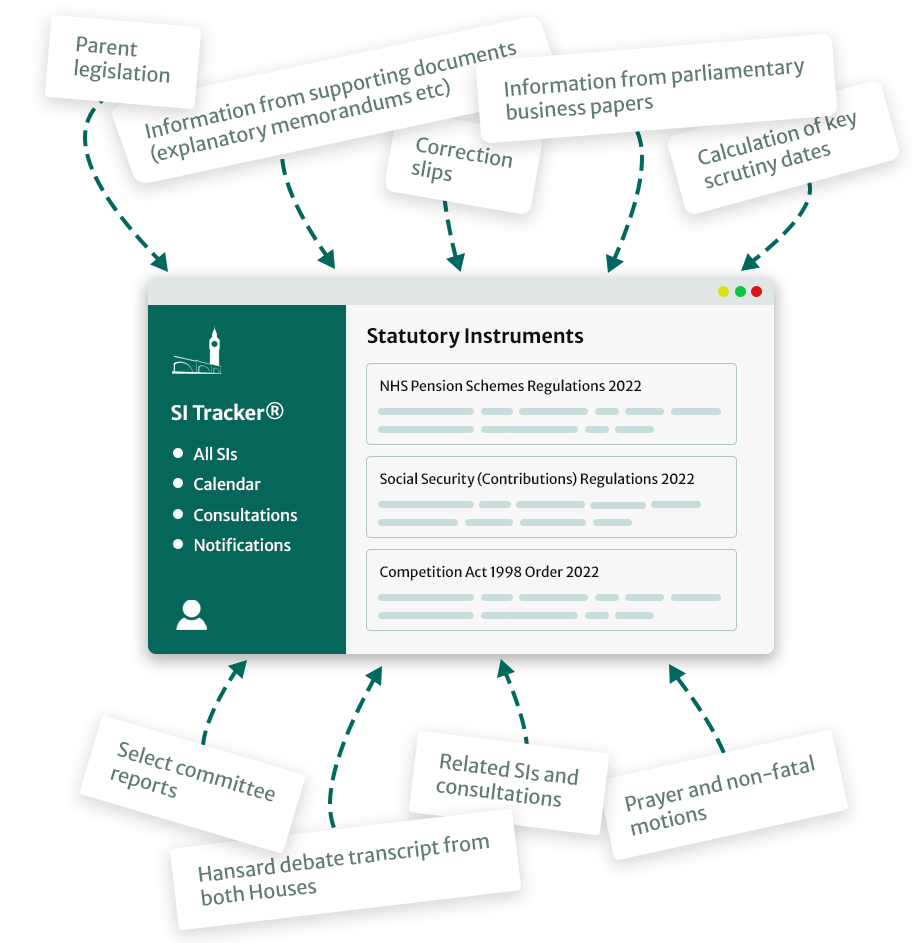1939-1979
Personal Injuries (Emergency Provisions) Act 1939
Civil Aviation Act 1949
Prisons Act 1952
Land Compensation Act 1961
Education Act 1962
International Organisations Act 1968
Taxes Management Act 1970
Immigration Act 1971
Misuse of Drugs Act 1971
Local Government Act 1971
Superannuation Act 1972
Education Act 1973
Health and Safety at Work etc. Act 1974
Customs and Excise Management Act 1979
Excise Duties (Surcharges or Rebates) Act 1979
Hydrocarbon Oil Duties 1979
International Monetary Fund Act 1979
Pneumoconiosis etc. (Workers' Compensation) Act 1979
Public Lending Right Act 1979
1980-1984
Magistrates' Courts Act 1980
Animal Health Act 1981
British Nationality Act 1981
Compulsory Purchase (Vesting Declarations) Act 1981
Senior Courts Act 1981
Administration of Justice 1982
Aviation Security Act 1982
Civil Aviation Act 1982
Education (Fees and Awards) Act 1983
Representation of the People Act 1983
Building Act 1984
Matrimonial and Family Proceedings Act 1984
1985-1989
Merchant Shipping Act 1985
Representation of the People Act 1985
Agricultural Holdings Act 1986
Animals (Scientific Procedures) Act 1986
Insolvency Act 1986
Copyright, Designs and Patents Act 1988
Criminal Justice Act 1988
Education Reform Act 1988
Local Government Finance Act 1988
Road Traffic Act 1988
Children Act 1989
Electricity Act 1989
1990-1994
Environmental Protection Act 1990
Food Safety Act 1990
Town and Country Planning Act 1990
Child Support Act 1991
Dangerous Dogs Act 1991
Water Industry Act 1991
Local Government Finance Act 1992
Social Security Administration Act 1992
Social Security Administration (Northern Ireland) Act 1992
Social Security Contributions and Benefits Act 1992
Social Security Contributions and Benefits (Northern Ireland) Act 1992
Taxation of Chargeable Gains Act 1992
Trade Union and Labour Relations (Consolidation) Act 1992
Pension Schemes Act 1993
Social Security Act 1993
Welsh Language Act 1993
Value Added Tax Act 1994
1995-1999
Civil Evidence Act 1995
Environment Act 1995
Jobseekers Act 1995
Merchant Shipping Act 1995
Education Act 1996
Employment Rights Act 1996
Employment Tribunals Act 1996
Housing Act 1996
Police Act 1996
Civil Procedure Act 1997
Bank of England Act 1998
Finance Act 1998
National Minimum Wage Act 1998
Northern Ireland Act 1998
School Standards and Framework Act 1998
Scotland Act 1998
Teaching and Higher Education Act 1998
Finance Act 1999
Greater London Authority Act 1999
Health Act 1999
House of Lords Act 1999
Immigration and Asylum Act 1999
Pollution Prevention and Control Act 1999
2000-2004
Care Standards Act 2000
Criminal Justice and Court Services Act 2000
Finance Act 2000
Financial Services and Markets Act 2000
Government Resources and Accounts Act 2000
Limited Liability Partnerships Act 2000
Local Government Act 2000
Political Parties, Elections and Referendums Act 2000
Postal Services Act 2000
Terrorism Act 2000
Adoption and Children Act 2002
Education Act 2002
Employment Act 2002
Enterprise Act 2002
Export Control Act 2002
Finance Act 2002
Nationality, Immigration and Asylum Act 2002
Police Reform Act 2002
Proceeds of Crime Act 2002
Tax Credits Act 2002
Communications Act 2003
Courts Act 2003
Criminal Justice Act 2003
Finance Act 2003
Health and Social Care (Community Health and Standards) Act 2003
Income Tax (Earnings and Pensions) Act 2003
Local Government Act 2003
Armed Forces (Pensions and Compensation) Act 2004
Child Trust Funds Act 2004
Energy Act 2004
Finance Act 2004
Gender Recognition Act 2004
Human Tissue Act 2004
Pensions Act 2004
Planning and Compulsory Purchase Act 2004
Traffic Management Act 2004
2005-2009
Constitutional Reform Act 2005
Income Tax (Trading and Other Income) Act 2005
Mental Capacity Act 2005
Animal Welfare Act 2006
Armed Forces Act 2006
Childcare Act 2006
Companies Act 2006
Education and Inspections Act 2006
Government of Wales Act 2006
Immigration, Asylum and Nationality Act 2006
National Health Service Act 2006
Work and Families Act 2006
Tribunals, Courts and Enforcement Act 2007
Welfare Reform Act 2007
Child Maintenance and Other Payments Act 2008
Climate Change Act 2008
Energy Act 2008
Health and Social Care Act 2008
Housing and Regeneration Act 2008
Planning Act 2008
Regulatory Enforcement and Sanctions Act 2008
Coroners and Justice Act 2009
Corporation Tax Act 2009
Finance Act 2009
Local Democracy, Economic Development and Construction Act 2009
2010-2014
Corporation Tax Act 2010
Flood and Water Management Act 2010
Charities Act 2011
Localism Act 2011
Police Reform and Social Responsibility Act 2011
Sovereign Grant Act 2011
Finance Act 2012
Legal Aid, Sentencing and Punishment of Offenders Act 2012
Welfare Reform Act 2012
Crime and Courts Act 2013
Energy Act 2013
Financial Services (Banking Reform) Act 2013
Public Service Pensions Act 2013
Anti-Social Behaviour, Crime and Policing Act 2014
Care Act 2014
Children and Families Act 2014
Finance Act 2014
Immigration Act 2014
Pensions Act 2014
2015-2019
Deregulation Act 2015
Recall of MPs Act 2015
Small Business, Enterprise and Employment Act 2015
Childcare Act 2016
Energy Act 2016
Immigration Act 2016
Higher Education and Research Act 2017
Policing and Crime Act 2017
Savings (Government Contributions) Act 2017
Data Protection Act 2018
European Union (Withdrawal) Act 2018
Haulage Permits and Trailer Registration Act 2018
Sanctions and Anti-Money Laundering Act 2018
Taxation (Cross-Border Trade) Act 2018
2020-2024
Agriculture Act 2020
European Union (Future Relationship) Act 2020
Finance Act 2020
Fisheries Act 2020
Private International Law (Implementation of Agreements) Act 2020
United Kingdom Internal Market Act 2020
Domestic Abuse Act 2021
Environment Act 2021
Finance Act 2021
Financial Services Act 2021
Medicines and Medical Devices Act 2021
Pension Schemes Act 2021
Trade Act 2021
Animals (Penalty Notices) Act 2022
Building Safety Act 2022
Economic Crime (Transparency and Enforcement) Act 2022
Elections Act 2022
Energy Prices Act 2022
Judicial Review and Courts Act 2022
National Insurance Contributions Act 2022
National Insurance Contributions (Increase of Thresholds) Act 2022
Product Security and Telecommunications Infrastructure Act 2022
Public Service Pensions and Judicial Offices Act 2022
Carer's Leave Act 2023
Economic Crime and Corporate Transparency Act 2023
Energy Act 2023
Finance (No. 2) Act 2023
Financial Services and Markets Act 2023
Illegal Migration Act 2023
Levelling-Up and Regeneration Act 2023
National Insurance Contributions (Reduction in Rates) Act 2023
National Security Act 2023
Non-Domestic Rating Act 2023
Northern Ireland Troubles (Legacy and Reconciliation) Act 2023
Online Safety Act 2023
Procurement Act 2023
Retained EU Law (Revocation and Reform) Act 2023
Social Housing (Regulation) Act 2023
Social Security (Additional Payments) Act 2023
Finance Act 2024
Trade (Comprehensive and Progressive Agreement for Trans-Pacific Partnership) Act 2024



